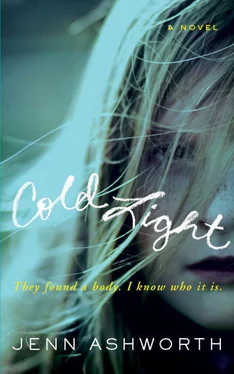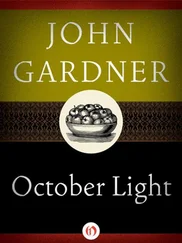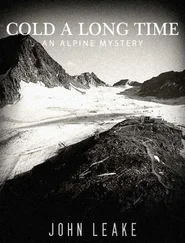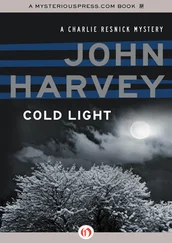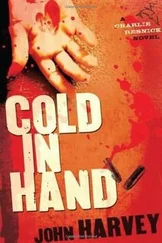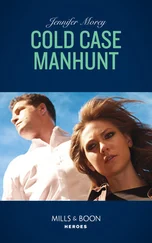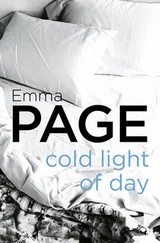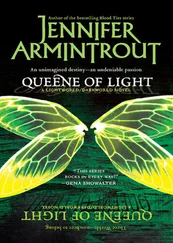‘She must have gone through his stuff. Found pictures like this. Chloe. Some of me. God knows who else.’
‘She’d have got rid of them,’ I say, and Emma nods.
‘That’s what you should have done. Chuck it all out. It’s disgusting.’ She tears the picture in half. ‘I don’t want anyone ever knowing about this,’ she says. ‘It’s bad enough having to think about it.’ She reaches out her hand and strokes the carpet beside her. It’s an unconscious movement and I wonder if she’s thinking about her dogs, about putting her hands into the coarse fur at the back of their necks.
‘I’d never say anything,’ I say quickly, ‘you can trust me on that. I’m your friend.’
Emma snorts, but doesn’t answer and I remove the very last thing, something I found in a black school coat pocket, a coat that pretended to be a Christmas present, a long time ago. I hold it in my hands. It’s a tiny thing. Could have been a dangerous thing. A cigarette lighter with a woman in a bikini on it. When it was new, you flicked the lighter to ignite the flame and her bikini disappeared. A bit of a surprise. Something saucy and harmless. Now her skin has a greenish tinge and the gas in the chamber is long gone. I hold it between my palms for a second, feeling the cold of the metal top against the web of skin between my thumb and first finger.
I remember this lighter.
I remember.
Emma takes it off me. ‘Was this Chloe’s?’ she asks, and frowns. She tests the wheel with her thumb a few times. There’s a scraping sound, but it doesn’t spark. The flint is gone. The feel of it in her hand reminds her, I think, that she wants to smoke, and she’s leaning forward, easing the green packet of tobacco out of her back pocket. The lighter is on the floor between us as she fiddles with matches and filters, runs the sliver of transparent paper along her tongue.
‘Here,’ she says, and hands me a cigarette. I light it from a match and we exhale together. My bedroom is tiny and soon the smoke is making a dusky halo around the bare lightbulb hanging from the ceiling, shrouded with its own ropy cobwebs of dust.
‘It doesn’t look like Chloe’s,’ she says. ‘Is it going in the box?’
I know what she’s thinking. It isn’t pink. It isn’t fluffy. It doesn’t sparkle or smell like strawberries, it doesn’t glitter or glow in the dark. So it isn’t Chloe’s. A long minute passes before I speak.
‘It was Carl’s,’ I say, ‘and he got it off Wilson. Or Wilson lost it, and Carl picked it up. I don’t know exactly.’
‘Carl gave it you?’ she says carefully. ‘Like a present?’ She says present with a tilt to it, and I realise what she’s implying, what she’s offering up to me. I can talk if I want to. I can be her friend like this.
‘No,’ I say. ‘I found it in the woods.’
I gesture half-heartedly at the television in the next room. We’ve left it on, and across the hallway and between two halfclosed doors, I can still hear Terry’s voice. He speaks into the silence, talking about human error and regret and despite everything how he’d like to take the opportunity to recap his personal career highlights. Emma was right. He can’t get away without admitting he was wrong.
‘Those woods on the telly?’
‘Yes.’
Emma looks at the lighter, and looks at me. She’s calm. She picks it up, examines it again as she finishes the last of her cigarette.
‘She’s supposed to get naked, when you flick it,’ I say. Emma nods. ‘I’ve seen them before. Sell them everywhere. Pound shops, newsagents, pubs. Hundreds of them.’
There’s no ashtray in here. No conveniently placed empty coffee mug or wine bottle. She flicks the ash into the shoebox and stubs out the cigarette in the lid.
‘It’s Wilson’s,’ I say, and Emma looks at me again – the same even, unreadable expression on her face.
‘I don’t want to know,’ she says. ‘I haven’t asked, have I?’ She opens her eyes wide and I can see she’s biting her bottom lip.
‘No,’ I say.
‘It goes in the box too then?’ she says neutrally.
‘Yes, okay. Get rid of it.’
She throws it in, and makes a show of pushing everything down flat and rearranging the papers and photographs so she can get the lid on tight.
‘Is there anything else?’ She is brisk and efficient now. She sounds like Barbara. I wonder about what’s left in that house – whether Barbara cleaned out my room as quickly as she emptied Donald’s. I think of my old things, and wonder who there is in the world to tuck them into drawers and keep them safe for me.
‘No, that’s it,’ I say. ‘I’ve nothing else.’
‘Good. Come on then, get up and get your coat on.’
‘What are we going to do with it?’
‘We’re going to chuck it out,’ Emma says, as if she expects me to challenge her.
‘I know a place,’ I say. ‘Do you have your car?’
She nods.
Outside, it’s getting light but the street is empty. I’ve been up this early before. The bread van should be arriving around now – the milk float, and the first bit of morning traffic. The early bus. But there’s nothing, and instead of a street full of darkened windows we can see the lights still on behind the closed curtains; people sitting up late, sitting up early – as long as it takes. The racks in front of the block of flats are still loaded with people’s bikes: no one’s leaving the house early for work this morning.
‘We’re missing Terry’s resignation speech,’ I say, not really meaning it.
Emma turns the keys in the ignition and smiles.
‘So what? We’ll get home in a couple of hours and catch his concluding remarks. As soon as he goes, Fiona is going to do an interview with Amanda. Exclusive. What her mother knew . I’ll lay down fifty quid on it for you.’
We smirk. I think it’s the first time I’ve seen her smile properly, ever. It used to flatten her face out – Chloe called her panhead because of it. Maybe something has changed as she grew up, or maybe I was just too quick to believe Chloe in the first place. The car is clean and the seats are covered with colourful afghans. It looks worn and loved in here.
‘Are you going to be all right to drive?’ I say. ‘We’ve been drinking all night. You must be knackered.’
She shakes her head. ‘I’ve driven in worse states than this,’ she says, which is not reassuring. ‘You’ll have to give me directions: I don’t know where I’m going. And when you want me to turn, don’t say left or right – point with your hand. I can’t tell, otherwise.’
I buckle my seatbelt and she thrusts the shoebox onto my lap and puts her foot to the floor. The screech of the car engine is deafening in the empty street, but we’re not waking anyone up – and no one opens their front door and shouts.
‘You want to get on the M6,’ I say. ‘We’re going up to Morecambe.’
Emma doesn’t shudder or tremble. Her phobias do not seem to be bothering her this morning.
The place where we stop isn’t miles away from where Donald might have taken his boat into the water. We park on the seafront at the northern edge of Morecambe after a long drive through the town and along a deserted, shuttered-up promenade. There are arcades, and the hoarding outside Frontierland tilts and lifts with a strong wind that whips across the bay and onto the hunched and huddled shopfronts flanking the curve of the land. We park on a double yellow line that Emma assures me doesn’t apply outside business hours. The road hugs the coast and the sharp outline of the concrete promenade contrasts with the ragged, muddy edge of the shallow bay. There are boats too – peeling, abandoned-looking things half sunk into the mud or sitting, tilted on the sand, chained to concrete-filled oil cans or bolts in the sea defence wall. And there are birds, big white birds sitting on posts and swooping to peck at fag-ends and abandoned polystyrene chip trays.
Читать дальше
